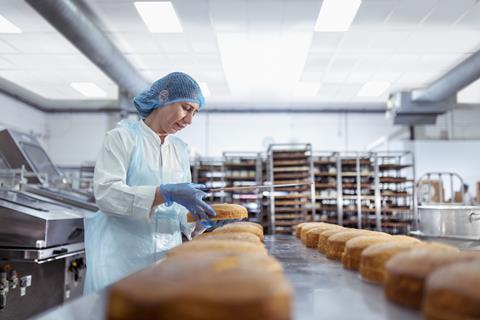
The Food and Drink Federation (FDF) has unveiled a plan to unlock investment in innovation, boost productivity, and accelerate growth for UK food and drink manufacturing.
It comes at a time when FDF data found that a range of rising costs in 2025 has resulted in a sharp decline in confidence among the sector’s 12,500 companies.
In its latest ‘State of Industry’ report, the FDF revealed that business confidence plummeted to -47% at the end of 2024, compared to -6% the previous quarter, largely in response to measures announced in the 2024 Autumn Budget and turbulence in global markets.
“As high levels of food and drink inflation continue, the pressure on businesses shows no sign of easing,” commented Balwinder Dhoot, director of industry growth and sustainability at the FDF. “Manufacturers are grappling with rising energy and commodities prices, alongside the impact of looming government policies, such as rising Employer’s National Insurance Contributions and the upcoming EPR packaging tax.”
The new Extended Producer Responsibility (EPR) packaging rules, which include fees for packaging placed on the market in 2024, will come into effect this October.
The FDF warned that these financial pressures are impacting business confidence, so there’s a risk of industry investment flatlining and of growth stalling. However, it said that, even in difficult context, government and industry can partner to reverse this trend.
To help set out regulations that should be reformed or eradicated, as well as new policy initiatives that would drive growth in the sector, the FDF has also launched a free-to-download ‘Ingredients for Growth’ report.
This includes 40 clear actions that the government can take to create conditions for a food system that is green and adaptive, productive and innovative. Also highlighted are the following six key industry asks to remove roadblocks to growth:
- Secure a fair share of the UK’s R&D spend for food and drink manufacturing, to support industry investment in new product development on healthier options for consumers and the transition to net zero
- Co-create a workforce and skills plan with Skills England to support the industry as it transitions to a higher-skilled, higher-wage workforce – vacancy rates in the food and drink manufacturing sector (5.1%) are more than double those seen in wider manufacturing (2.4%) [State of Industry Q4 2024 report]
- Simplify the R&D tax credits system to help more businesses that are struggling to invest in technology to improve productivity and to innovate healthier products
- Ringfence the £1.4bn annual cost of EPR to ensure these fees are only used on improving the UK’s recycling infrastructure and not to fund local authority funding gaps
- Prioritise a more strategic approach to EU trade relations to revive falling EU exports, which are down more than a third since Brexit [FDF’s Trade Snapshot Q4 2024]
- Simplify regulations and remove unnecessary red tape to help business, in particular the 12,000 SMEs, focus on growth and productivity.
“We want the UK to offer a much more competitive environment for international and domestic investment in food and drink, to ensure we’re a world-leading destination for new products and ground-breaking research, as well as nurturing iconic brands that are loved here and abroad,” said FDF chief executive Karen Betts, adding “Together, we have the ingredients to make the UK the best place in the world to run a food and drink business.”
































No comments yet